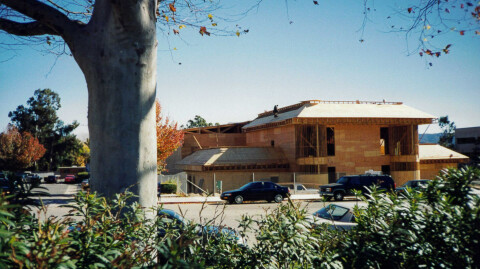Resurrection Reverberation: The Ultimate Upgrade
1 Corinthians 15:35-49
Does our belief in the resurrection matter? Does it affect our worship, view of God, and life today? The church at Corinth had a neutral to negative view of a future bodily resurrection, so they were not too interested in the idea that a follower of Christ would one day get a new body. But Paul knew that this was no small issue. He called out the people in the church for thinking that way: “You foolish person! What you sow does not come to life unless it dies.” Views of life, death, and resurrection matter, and thinking rightly about it was Paul’s purpose in this section. He taught that our resurrection bodies will have continuity to ours now, will have distinct contrasts to ours in the future, and will have comparison with two men.
- There is clear continuity between our bodies now and those in the future (15:35-38). A seed that is planted must die or germinate in order to produce a plant, but it is still the same kind. Just like an upgrade to a computer or iphone produces new effects, our new bodies will be different, but not so different as to be unrecognizable. The result: in your new body, you will still be you, just in a remarkable upgraded way.
- There is also distinct contrast between our bodies now and in the future (15:39-44). Just like there are different kinds of plants and animals, and just as there are different forms of light, our bodies will be radically re-formed in the future. Not only will they be different than they are now, but they will be different from each other, maintaining distinctiveness even into eternity. The result: we will be given new bodies that are designed for eternity, with strength, honor, and immortality to worship God forever. What we struggle with today will be remedied in our perfected bodies in the future.
- There is finally a comparison between our bodies that are like the first Adam (of Adam and Eve), and the second Adam, Jesus Christ (45-49). Our bodies today came from dust and are designed to go back to dust. Our bodies to come will be like Jesus’ resurrected body, where He was recognizable as a man and even had His scars, but also was not bound by the same laws of physics, since He could enter locked rooms and disappear from a group (see John 20-21; Luke 24 for descriptions).
We will be given bodies prepared to worship God forever. We will not be bound by our sin, by death, or by our own weakness. Our worship today should be affected by this truth. It should reflect what we will do throughout eternity. What would be different about the following areas if we had a clear perspective concerning our future resurrected bodies: in areas of corporate and private worship, in dealing with trials, in the way we view our bodies and physical preservation, in our view toward the nations and missions, in anxiety and future plans, and in our pursuit of finding joy in Christ now?




